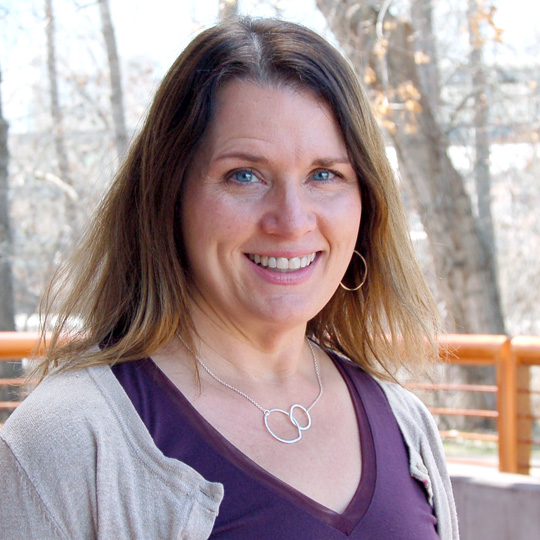Dr. Pate’s Prescription for Change
St. Luke’s Community Members are Taking to Lifestyle Changes to Improve Health


The CHIP program, offered through St. Luke’s, is transformative.
I should know – I have tried many programs without long-term success. I have lost 60 pounds since beginning the CHIP approach nearly a year ago.
We physicians have many medications we can put patients on for high blood pressure, high blood sugars and high cholesterol, but the CHIP program often gets better results than our medications, and usually allows for a reduction in medication for participants. And given the high costs of these medications, physician visits and testing to follow up on treatment, CHIP more than pays for itself.
Here to tell you more about this life-changing program is St. Luke’s Communications Coordinator Chereen Langrill.
- David C. Pate, M.D., J.D.

Reversing heart disease. Preventing diabetes. Fighting off dementia.
A new education program available through St. Luke’s is providing hope to people that healthy solutions to some chronic conditions are possible.
The Complete Health Improvement Program (CHIP) teaches the merits of a whole food, plant-based diet. The 18-session program is designed to reduce disease risk factors through healthier habits and lifestyle modifications. By the end of the course, many participants have reported lower blood cholesterol, hypertension and blood sugar levels and weight loss, although that isn’t the program’s primary goal.
“It’s about living your best life and thriving,” said Dr. Jennifer Shalz.
Dr. Shalz, medical director of St. Luke’s Heart Health and Rehabilitation, brought CHIP to St. Luke’s as part of the new Lifestyle Medicine department that will focus on the link between behavior change and disease management and prevention.
Shelley Shelstad recently completed the program.
Shelstad said he has always felt great, even though his body told a different story. He had high blood pressure and was on three different medications to manage his condition.
Getting closer to retirement gave him the motivation to make a change, and when he shared his concerns with his wife, Nancy, she reminded him that they had received a postcard in the mail inviting them to a new course that focused on nutrition and other lifestyle changes.
They began the class together in January. On that first night of class, each person was asked to share their reasons for signing up. When it was Shelley’s turn, he told the group, “We want to live forever and we want to be healthy and happy doing it.”
He laughs about his spontaneous statement, but it wasn’t far from the truth. The couple is in a sweet spot in their lives and excited for the possibilities ahead of them.
“We just got this nice house, we’re moving closer to retirement,” he said. “We don’t want to get this close and mess it up.”
On that first night, Shelley’s blood pressure was 210 over 110. Now it is 125 over 70. He still takes medication, but his dosage has been cut in half. He has also lost 60 pounds. Nancy has lost weight and improved her overall health, but her primary motivation for participating was to support her husband.
The couple, who will celebrate their 30th anniversary in August, is on a new journey together.
“I really wanted to do this for us,” she said.
The program’s success comes from a combination of education and the fact that participants all share barriers and are there to make a change, said Charmin Aschenbrener, St. Luke’s dietitian.
“The group supports each other,” Aschenbrener said. “It’s a safe space.”
Course content endorsed by the American College of Lifestyle Medicine educates participants on the science behind a plant-based diet, stress-management techniques and the role exercise should play in daily life. Participants reflect on the changes that modern culture has meant when it comes to personal health as people have moved away from active lifestyles to more sedentary behavior and the convenience of processed foods instead of fresh, whole food prepared at home.
Food tends to be the greatest focus because for many participants, changes might entail a radical shift in how they view food and new patterns of eating, Aschenbrener said. Because the program focuses on whole foods that are minimally processed, there’s no need to count calories or carbohydrates. Some participants decide to avoid all animal products but it’s not necessary for success, she said.
“We are advocating for moving along the continuum. We try to get people to move over as much as they can so they can see the power of this type of food,” Aschenbrener said.
The Shelstads are eating a plant-based diet most of the time but have had meat occasionally. It’s not something they miss, even though both were raised on diets where meat was part of most meals.
While the idea of moving to a plant-based diet represented a dramatic change for the Shelstads, the message never felt restrictive.
“Never in the class did they say, ‘Thou shalt not …’” he said.

These days, the Shelstads spend Sunday evenings preparing healthy meals for the week ahead. They chop vegetables and fruit, placing them in containers for weekday lunches. They also make meals for weeknight dinners, freezing portions and reheating them as needed.
Daily walks are also part of their new routine. The Nampa couple commutes together to their Boise jobs and then stops at the mall on the way home from work to walk each night. Shelley is also able to take walk breaks during the day, enabling him to log a total of six miles each day.
“We have fully accepted and embraced it,” Shelley said. “We saw results right away and just dove into the deep end.”
Co-workers have noticed changes in Shelley and Nancy and have expressed interest in trying CHIP.
While some people are surprised by the results achieved by class participants, it’s not a surprise to Dr. Shalz.
“It doesn’t surprise me, because science shows what happens to the body on a plant-based diet,” she said. “What has surprised us is the fervor of the people in this program.”
“This is showing them that they have ownership in their health,” Aschenbrener said. “It’s giving them power to change the direction of their life.”
Success by the Numbers
St. Luke’s launched the Complete Health Improvement Program in summer 2017 and results from each 18-session program have shown that participants consistently lose weight and improve health markers such as cholesterol and blood pressure.
“People feel so much better, and they are so encouraged by that,” said Jeff Wagner, Department of Lifestyle Medicine clinical supervisor.
Here are the average per-person results of a recent nine-week course with 162 participants:
- Weight lost: 9.7 pounds or 4.5 percent
- Waist inches lost: 2.04 inches
- Blood pressure: Dropped from 131/76 to 123/72
- Cholesterol: Dropped from 172 to 155
- LDL: Dropped from 100 to 89
- Triglycerides: Dropped from 134 to 127
- A1c (blood glucose): Dropped from 5.9 percent to 5.7 percent
Learn more about CHIP, including upcoming information sessions.
About The Author

Chereen Langrill was formerly a communications coordinator for St. Luke’s Health System.





